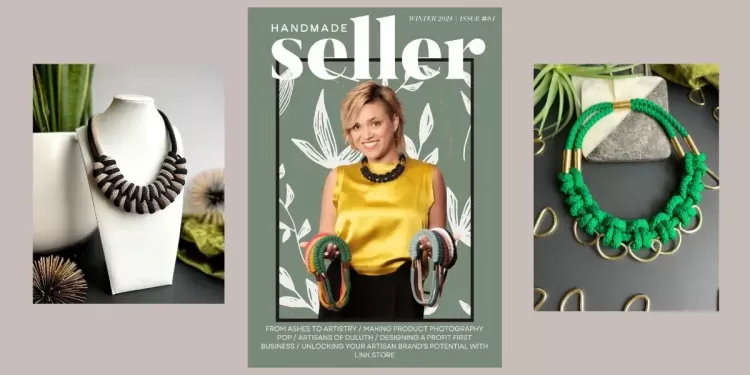When first meeting a retailer interested in purchasing your products, they may very well ask you if you sell to any other store located near there’s. This is a very important question to some retailers and one you should be prepared to answer. It is also important to understand why they are asking it!
Every retailer works hard to create a unique personality for their shop. They attract customers because their store is different, selling items not available anywhere else in town. They want folks to get excited, to “ooh and aah” over distinctive items, and to buy them for the best possible price. No matter how special your products are, if they are in one or more nearby shops, the customer has seen them and most likely even compared their prices.

Building an Exclusivity Policy
If you want this retailer and their store to be your new customer, it is important to consider giving them an exclusive right to your merchandise. The decision is totally up to you, as are the terms attached to your decision. Even before the question is asked, you should work through the options as well as the pros and cons of your policy.
In devising your exclusivity policy, it is important to balance the retailer’s needs with your own. They don’t want you to sell to a nearby competitor, while you want to sell your products to as many people as possible. Therefore, many makers decide to use zip codes as their location marker, selling to just one store in a particular zip code. They may also require that retailer to spend a certain dollar amount with them or place a minimum number of orders per year. Hence, your policy may read:
Zip code exclusivity is granted to retailers who have ordered at least two times per year and whose orders exceed $2000.
Now granted, this is not a foolproof policy. If you are a new wholesaler and your product is pricey, the retailer who has a competitor very close by might want immediate exclusivity. It is your decision to grant it if the initial order meets or exceeds the $2000 threshold, with the added caveat you expect them to place another order within the year.

Know Your Retailer's Locations
Also zip codes are not foolproof because at some point they meet and hence the competing stores can be very close geographically. You can expand the boundary to include the entire town, city or even county. However, keep in mind as you expand the exclusive territory, the retailer should be expected to increase the amount they are spending with you. If you are granting exclusivity, it is imperative that you keep an accurate list of your customers including their complete address. That way when a new customer shows interest in your line, you immediately can check your records to see if you have a customer in the same area.

Do You Need an Exclusivity Policy?
Can an exclusivity policy be a headache? Yes, indeed it can. If you granted exclusivity to a shop and they have not met the minimum requirements, you might need to check with them before automatically selling to another shop. There may be extenuating circumstances, and you never want to hurt a good customer.
Do you absolutely need an exclusivity policy? No, you do not, especially if you are selling inexpensive goods. Many times, small every day items can be in several local shops without any problems. This can include items like greeting cards, costume jewelry, and candles. However, regardless of your policy, it is best to let a retailer know that the product they want to order is sold in a location near to them.
If you are selling higher priced items, keep in mind you are asking the retailer to make a larger investment with you. If your product is retailing in the hundreds or thousands of dollars, you absolutely can expect the retailer to want protection. And regardless of the price point, if you are lucky to have a retailer selling thousands of dollars of your product every year, you may be wise to grant him exclusivity. As a final point, if your product line is large and diverse, often retailers will choose to carry only part of your offerings which makes it easy for another store to carry some other part of your offerings.
Exclusivity Can Be Your Tool to Build a Positive Relationship with Retailers
As a former retailer, I can honestly say we appreciated exclusivity for several product lines that were important to us. We had three competitive stores on the same street! At the same time, one of those stores carried a popular line of moderately priced blown glass ornaments and so did we. We both sold them well and there was never a problem, and I cannot remember a customer ever mentioning seeing the ornaments right down the street.
Always keep in mind that the most important goal of your wholesale business is establishing excellent, long-term relationships with your retail partners. This goal can help you determine your exclusivity policy and how you maintain and enforce it over time.
Interested in a subscription to the magazine?
Interested in a digital or print subscription to our quarterly magazine? Or are you interested in reading back issues of the magazine?







